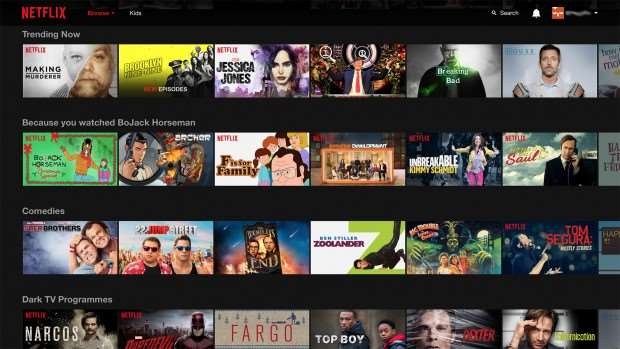Netflix will now allow users of its mobile apps to download shows and watch them offline, a feature that users of the streaming service had sought for some time.
The company updated its iOS and Android apps to add a new download button that offers users a chance to “download now to watch offline later”.
“While many members enjoy watching Netflix at home, we’ve often heard they also want to continue [to] binge while on airplanes and other places where internet is expensive or limited,” Netflix said in a blog post.
“Many of your favourite streaming series and movies are already available for download, with more on the way, so there is plenty of content available for those times when you are offline.”
The blog post emphasised mostly Netflix Originals content as being among the first shows to be made available for offline viewing.
Further reports have found exclusions including the Disney catalogue, which can’t be downloaded via the apps.
Mashable confirmed there were “not a whole lot of movies” that could be downloaded. Netflix has created a new section that allows users to see exactly what content is “available for download”.
Netflix offers two download quality options – a “standard” definition option that Mashable likened to 480p quality – and a higher definition option, though it is not the default.
Gizmodo noted there isn’t a vast difference in the file sizes – six episodes of Black Mirror at standard definition requires 1.86 gigabytes of free space on your phone, compared to 2.45 gigabytes for the higher quality downloads.
Gizmodo also noted that the content downloads aren’t viewable outside the Netflix mobile app; they don’t show up in a file manager on the handset, and they can’t be ported to a device with a larger screen.
Netflix’s embrace of offline viewing has been a long time coming. Back in 2014, the company believed that content licensing and local device storage constraints would conspire to prevent the launch of such a capability in future.
CEO Reed Hastings said in April this year that the company was keeping an "open mind" about offline viewing.
The company softened its stance further by earmarking an offline viewing capability for emerging markets, where ubiquitous internet connectivity couldn’t be guaranteed, thus preventing the growth of services like Netflix.









